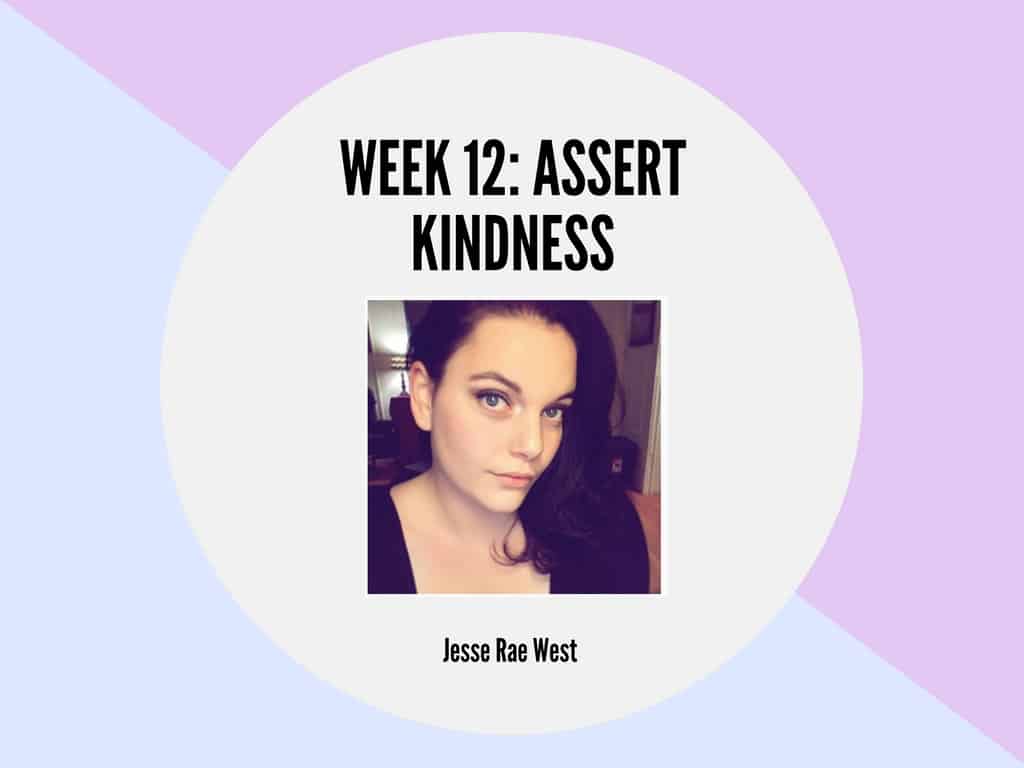Sometimes I wonder how many times in my life I’ve apologized for things that weren’t my fault. I think “I’m sorry” is probably my most uttered phrase. When we apologize for things that are not our fault, we devalue the meaning of apologies. If you’re a woman you probably know what I’m talking about: we grow up learning to be quiet and polite and agreeable. We take on the feelings of others, as if they were our own burden to carry through life. We are told to take up less space and be thankful for receiving less.
I have always felt that because I am so unwell, I deserve less than everyone else; that I wasn’t good enough for the things I had, whether they be romantic partners or friends or job opportunities. (I recently left a job I loved because I felt under appreciated and taken for granted. I have never done anything like that before.) But because I’ve taken on a six-month period of healing, I am evaluating all of the relationships in my life and deciding which are beneficial to my mental wellness and growth and which are negatively impacting me.
Asserting your needs can be really hard when most of the people in your life know you’re unwell. It can be hard not to feel like folks are questioning your decisions and chalking them up to illness. Gaslighting is when you manipulate someone psychologically into questioning his or her own sanity. This happens a lot, whether or not people want to admit it. I know we all want to believe that humanity is objectively good and supportive, but I don’t know if I can get behind that.
We exist in a culture where mental illness is becoming more accepted; however, a lot of folks get more enthusiastic about hashtags than they do about actually supporting mentally ill folks. The support feels superficial at best. Ultimately, this has taught me to expect less overall.
Our world requires us to fight constantly, to assert our needs and go after the things we want. What happens when you can’t do that though? When getting out of bed or not crying on the TTC seems unimaginable. Mentally unwell folks get left behind and are told we have no one to blame but ourselves. While it’s true we are all responsible for our own well being, it’s time we acknowledge that not all of us are starting from the same place.
Part of my healing process includes expecting more from myself and more from others who love me. I encourage everyone to do the same. Self-deprecation can be funny and a way of processing feelings, but eventually it does affect you. I’m never going to fully love everything about myself, but I know that being in a place where I don’t hate myself makes life way more enjoyable.
If I could go back in time and have a conversation with my teenage self I would say: Start therapy now. As soon as you can. You have a lot going on in your brain and it’s affecting your ability to function in society and maintain relationships. Most folks aren’t going to understand what it feels like to be you and they certainly aren’t going to understand what it feels like to have Borderline Personality Disorder. Stop telling yourself you are garbage. Eventually you’re going to tell yourself that so often that you actually believe it. When you think you are garbage you allow yourself to get away with garbage behaviour. When you tell yourself you are worthless you accept less than you deserve.
And you are worthy of so much more.



 Follow Us On Instagram
Follow Us On Instagram
